
What is membrane computer keyboard? membrane keyboard vs mechanical
What is membrane computer keyboard? membrane keyboard vs mechanical
Membrane computer keyboard is ideal for office and home environments due to their lightness, portability, affordability, waterproofness and dustproofness, and are suitable for ordinary users who do not require high keyboard performance. Mechanical keyboards, on the other hand, are favored by gamers and professional users due to their independent shaft design, precise tactile feedback and long life, although they are more expensive and noisy.
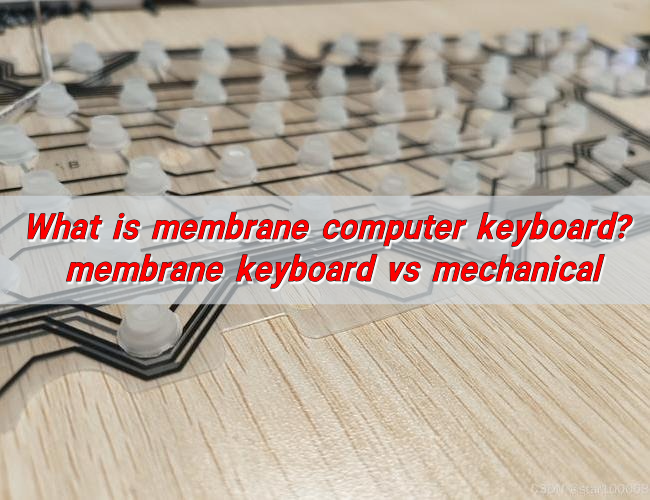
What is membrane computer keyboards?
Membrane computer keyboard doesn’t use separate moving switches under each key like mechanical keyboards do. Instead, it uses pressure pads and a flexible printed circuit board, often referred to as the membrane keyboard PCB.
Under each key is a soft rubber dome that, when pressed, pushes down on a conductive trace to register a keypress. This structure is why it feels quiet and smooth when you type on one.
Inside a membrane keyboard, you’ll find three layers: a top membrane, a spacer, and a bottom membrane. When you press a key, these layers connect, creating an electrical circuit.
What is the best membrane keyboard?
Some of the computer keyboards best membrane models offer incredible value. They feature silent operation, spill resistance, and even wireless capabilities. A wireless membrane keyboard is especially handy if you want to keep your desk neat and cable-free.
Good membrane switches have soft-touch keys, ergonomic designs, and customizable features. If you need a membrane keyboard for gaming, look for models with anti-ghosting and fast response times.
What matters most is comfort, reliability, and how the keyboard fits your routine. A good membrane keyboard should feel effortless to type on and offer long-term durability.
What is the difference between mechanical and membrane computer keyboards?
Mechanical keyboards use individual switches for each key. That means every key has its own spring-loaded mechanism. They’re known for their satisfying click, fast response, and longer lifespan.
On the other hand, membrane keyboards are quieter, lighter, and often much more affordable. They have a softer feel, which many people find comfortable for long typing sessions.
Membrane keyboard is usually lighter in weight. It’s also less noisy. That makes it a great choice for shared spaces like offices or libraries.
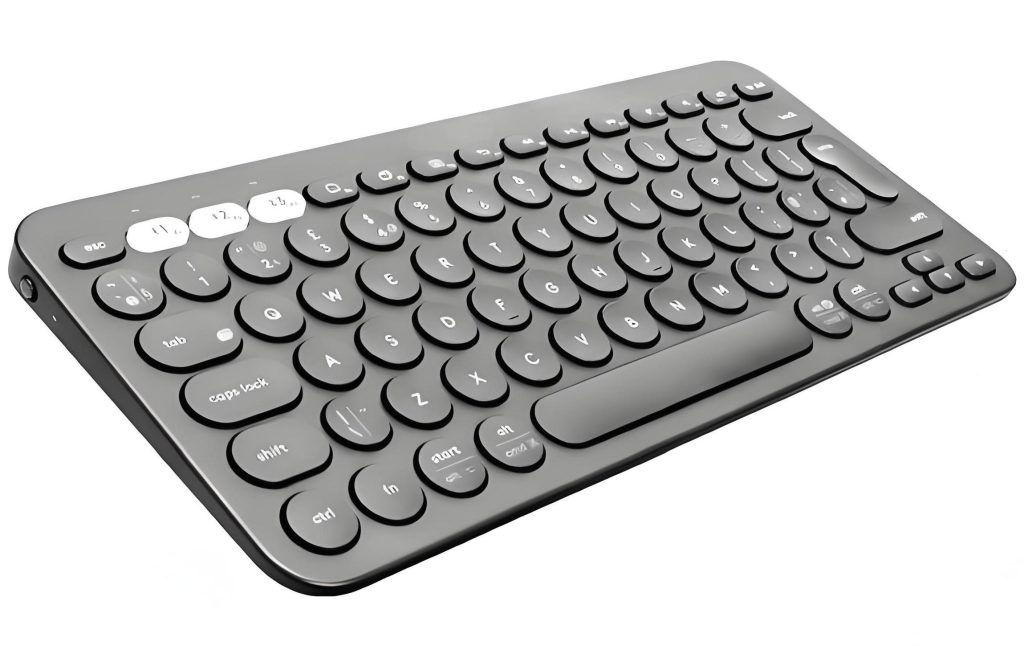
While mechanical keyboards may win in performance and durability, membrane keyboards are winners in silence, portability, and budget-friendliness.
Are membrane keyboards good for typing?
Absolutely. In fact, for most people, membrane PC keyboards are great for typing. The soft, cushioned feel reduces finger fatigue. That’s especially helpful during long hours at work or school.
The keys are easy to press, requiring less force. This results in a smoother typing experience. Over time, this can even help reduce strain on your fingers and wrists.
The layout of most computer membrane keyboards is also very familiar, which helps with comfort and speed.
While they might not offer the same tactile feedback as mechanical keyboards, they make up for it in ease and comfort.
Is a membrane keyboard good for gaming?
Many gamers use membrane keyboards for gaming. They’re affordable, quiet, and often come with features like LED backlighting and programmable keys.
Gaming on a membrane keyboard is smooth and responsive enough for casual and even competitive players. Some high-end models include features like anti-ghosting and key rollover, which prevent lag during fast-paced gameplay.
Of course, professional gamers might lean toward mechanical options. But if you’re a casual gamer, a good membrane keyboard can still offer a fun and responsive gaming experience.
Do all laptops have membrane keyboards?
Most laptops today use a version of membrane keyboard switches. These are often a mix of scissor-switch and membrane designs. They’re low-profile, quiet, and optimized for portability.
So yes, nearly all laptops rely on some form of computer membrane technology. That’s why laptop keyboards feel soft and silent compared to desktop mechanical keyboards.
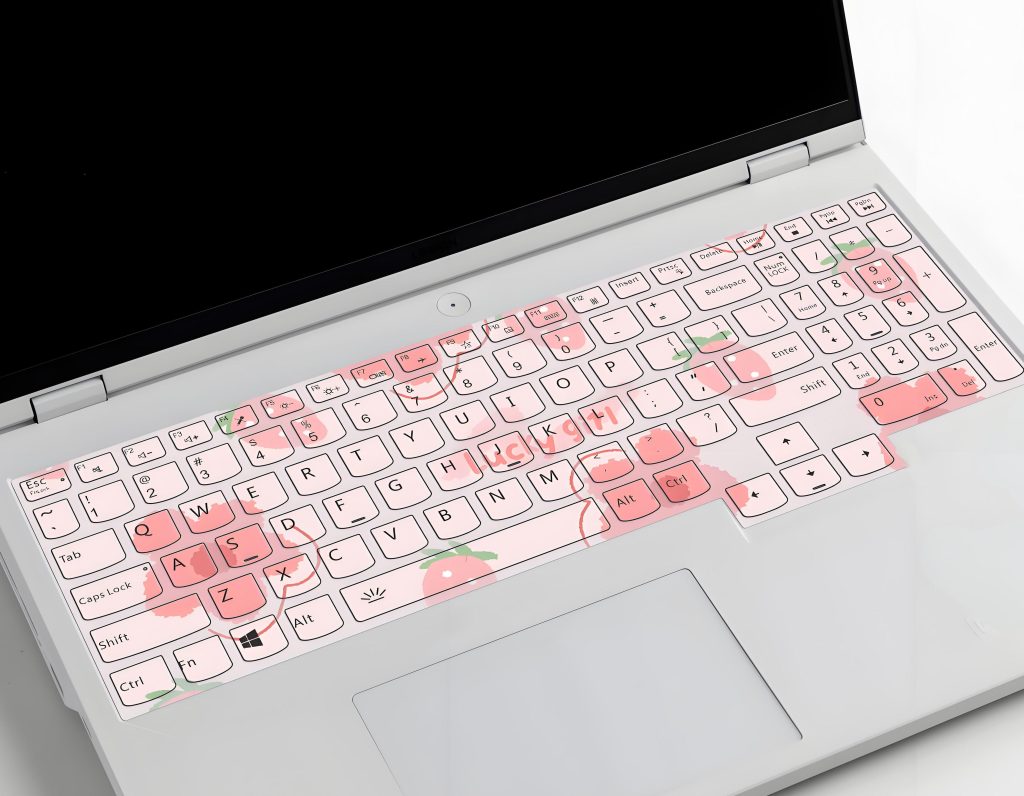
It’s a perfect match for people who work on the go. Lightweight, compact, and whisper-quiet—exactly what you want in a portable device.
Why is my membrane keyboard not working?
If your membrane keyboard not working issue suddenly appears. There could be several reasons:
- Loose USB connection
- Software or driver issues
- Spilled liquid or debris under keys
- Internal damage to the membrane keyboard PCB
- Faulty power supply (especially in wireless models)
First, check your connection and restart your computer. If that doesn’t help, try another USB port or replace the batteries if it’s a wireless membrane keyboard.
If cleaning doesn’t solve it, it might be time to look deeper.
Can a membrane keyboard be repaired or replaced?
Yes, and yes. If you’re experiencing key issues or responsiveness problems, a membrane keyboard repair might be possible.
You can open the keyboard and clean the internal layers, especially if you suspect dust or liquid damage. In some cases, replacing the keyboard membrane itself can fix the problem.
However, repairing membrane keyboards can be tricky since they’re sealed units. If the membrane keyboard inside is damaged beyond simple fixes, replacing it is often the better choice.
Fortunately, many keyboard membrane replacement parts are affordable. So even if repair isn’t ideal, replacement won’t break the bank.
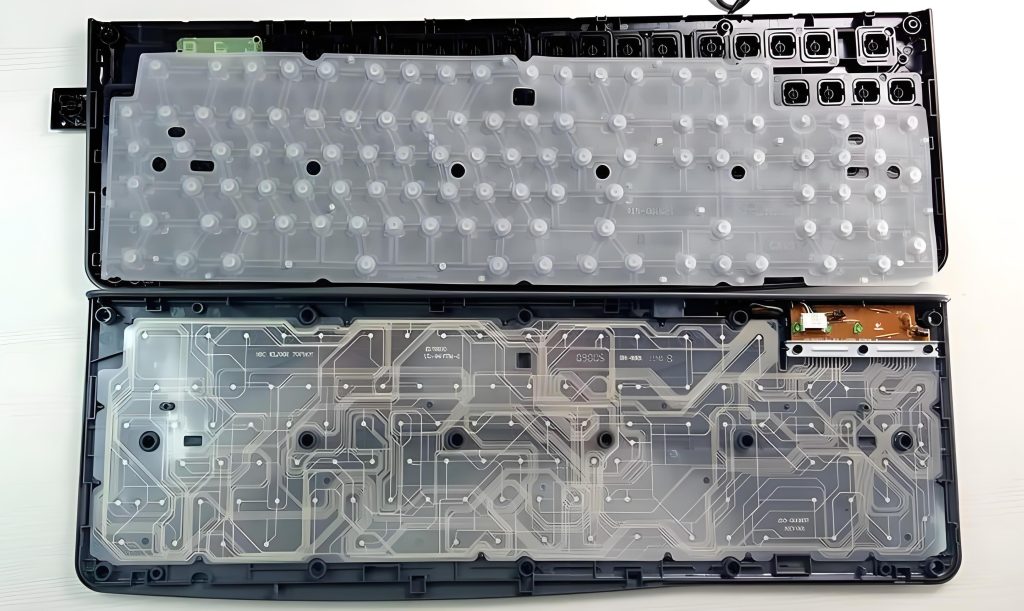
And let’s be honest—upgrading to a newer, more comfortable model might even make your day-to-day typing feel brand new.
Conclusion:
In the world of computer peripherals, membrane computer keyboards hold a special place. They’re cost-effective, user-friendly, and incredibly versatile. Whether you’re typing reports, chatting online, or diving into your favorite game, a membrane PC keyboard delivers reliability without the noise or weight of mechanical options.
Want help choosing the right membrane keyboard for your project or repair? Reach out to us anytime at sales@best-membraneswitch.com. We’re here to help you find the perfect fit.
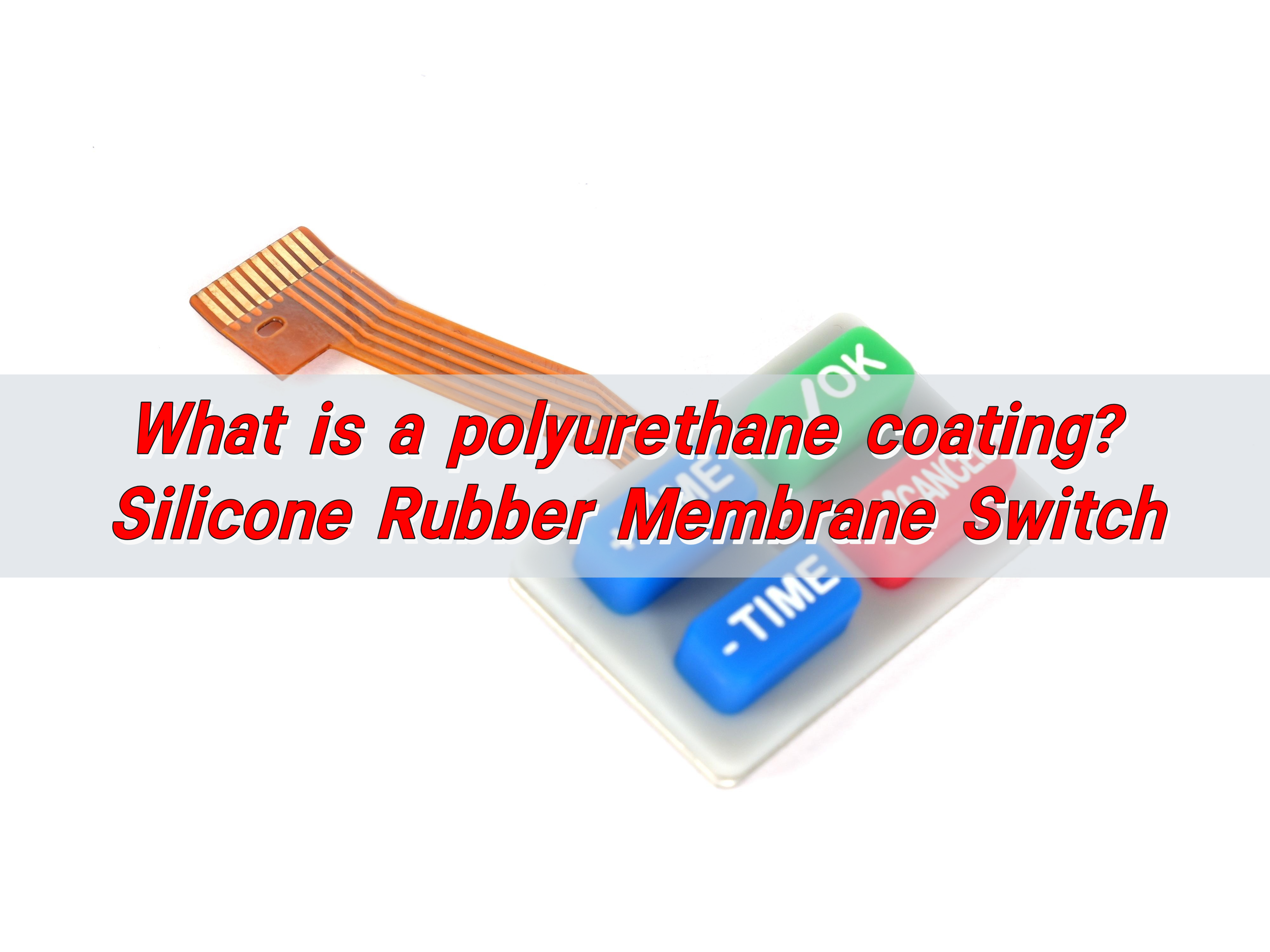
What is a polyurethane coating? Silicone Rubber Membrane Switch
Polyurethane coating is a protective coating with properties such as moisture resistance, chemical resistance, dielectric properties and wear resistance, and is widely used to protect electronic products from environmental influences. In silicone rubber membrane switches, polyurethane coating ensures the stability and reliability of the switch in harsh environments by providing moisture resistance, chemical resistance and ...
Silicone Keypad Manufacturers: All About Silicone Buttons
Silicone keypad is a keypad made of silicone rubber material, which is soft, elastic and durable. It has good waterproof, dustproof and chemical corrosion resistance, suitable for use in harsh environments. Yu An Electronics specializes in the production of silicone keypads, which have excellent insulation and circuit conduction properties. During the molding process, the silicone ...
Mistakes to Avoid When You Order PCB Membrane Switches
It is a fantastic strategy to ensure the inventory when you run a business that needs membrane switches and pcb units. The priority should be to choose a reliable seller from the competitive industry. There are some errors that you should avoid. Here is a glimpse. Rushing through the order process There is no need ...
Contact us online